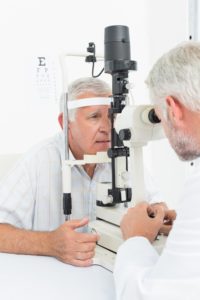Tips to See Things Clearly
Have a comprehensive dilated eye exam and see better!
Your eye care professional can help you see things clearly by detecting common eye diseases such as diabetic eye disease, diabetic retinopathy, glaucoma, cataract, age-related macular degeneration. These diseases often have no warning signs, so a comprehensive exam periodically is a good idea. During a comprehensive exam, your pupils will be dilated so that the eye care professional can get a good look at the back of your eyes and examine them for signs of disease or damage.
Give Your Eye Doctor Your Health History.
Patients often don’t realize that there’s a connection between illnesses in the body and eye issues. Hypertension, blood pressure and diabetes can all be detected by looking in the back of the eye, so alert your doctor to your risk factors so she can take the right course of action during the exam.
Control the Air Quality in Your Home.
In winter, heating systems in homes create dry air causing eye irritation. Use a portable humidifier to keep air moist. If you have a pet, keep its hair off areas where you sit or lie down. Along with shedding dander, pets can also track in other irritants from outside that can cause irritation in the eyes.
Wear Your Shades.
A lifetime of UV light exposure can contribute to cataracts and macular degeneration, so always wear sunglasses with 100% UV-A and UV-B protection.
Glaucoma
Older adults, especially those with a family history of glaucoma, should get their eyes checked. Glaucoma has no symptoms and any loss of vision cannot be restored.
Early detection and treatment is so important to slow the progression of this disease.
Are Your Immunizations Up-to-Date?
August is National Immunization Awareness Month (NIAM) and is sponsored by the National Public Health Information Coalition (NPHIC). You can find out more at www.nphic.org/niam!
Did you know that vaccinations are not just for children and teens? Older adults need to be up-to-date on important immunizations too. NIAM was established to encourage people of all ages to make sure they are up to date on the vaccines recommended for them. Each year in August we are reminded of the important role vaccines play in preventing serious, sometimes deadly, diseases.
Get Vaccinated!
An estimated 1 million Americans get shingles every year, and about half of them are 60 years old or older. Additionally, over 60 percent of flu-related hospitalizations occur in people 65 years and older.
As we get older, our immune systems tend to weaken, putting us at higher risk for certain diseases. This is why, in addition to seasonal flu (influenza) vaccine and Td or Tdap vaccine (tetanus, diphtheria, and pertussis), you should also get:
Pneumococcal vaccines, which protect against pneumococcal disease, including infections in the lungs and bloodstream (recommended for all adults over 65 years old, and for adults younger than 65 years who have certain chronic health conditions)
Zoster vaccine, which protects against shingles (recommended for adults 60 years or older)
Talk with your doctor or other healthcare professional to find out which vaccines are recommended for you at your next medical appointment.








Comments are closed.